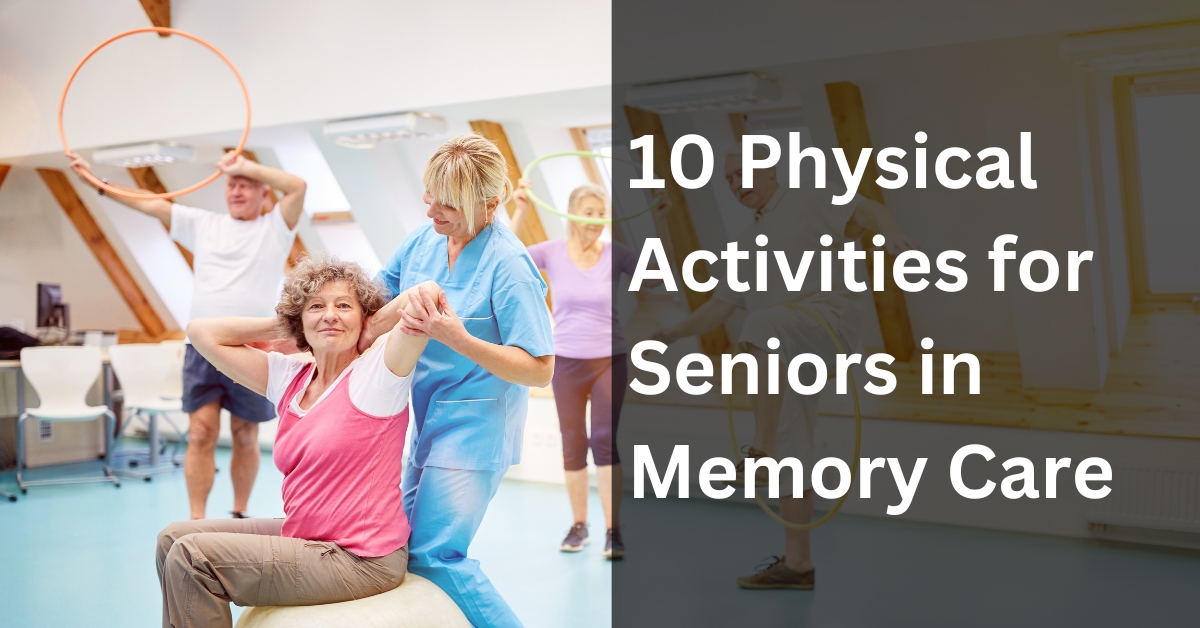As our loved ones age, their needs evolve, often requiring more care and attention than we can provide at home. Recognizing the right time to transition to assisted living can be challenging, but it is crucial for their well-being and your peace of mind. Assisted living facilities offer a safe and supportive environment where seniors can enjoy their independence while receiving the care they need.
What is a Senior Assisted Living Facility?
A senior assisted living facility is a specialized residence designed for older adults who require varying levels of assistance with daily activities. These facilities offer services such as personal care, housekeeping, and medication management support tailored to the needs of seniors. They provide a supportive environment that fosters independence and social interaction, with options ranging from independent living to assisted living and memory care. The goal is to enhance the quality of life and ensure safety and comfort for elderly residents.
Here Are 10 Signs It’s Time for Assisted Living
Difficulty with Daily Activities
If your loved one is struggling with basic self-care tasks such as bathing, dressing, eating, and toileting, it may indicate they need additional support. These Activities of Daily Living (ADLs) are essential for maintaining their dignity and quality of life. Assisted living facilities are designed to help seniors with these tasks, providing the necessary assistance while allowing them to maintain as much independence as possible in a safe and caring environment.
Poor Nutrition and Weight Loss
Proper nutrition is crucial for maintaining health and energy levels. If your loved one is losing weight, showing signs of malnutrition, or forgetting to eat, an assisted living facility can help. These facilities provide balanced meals and snacks, ensuring residents receive the necessary nutrients. They also monitor eating habits, address dietary needs, and encourage healthy eating, which can prevent further health complications and improve overall well-being.
Engaging Activities in Assisted Living Facilities – Enhance Your Lifestyle
Increased Isolation and Loneliness
Social interaction is vital for mental and emotional well-being. If your loved one is becoming increasingly isolated or lonely, assisted living can offer a vibrant community with social activities, group outings, and opportunities to form new friendships. These social interactions help prevent depression and anxiety, keeping your loved one engaged and connected with others. Assisted living facilities provide a sense of belonging and community, which can greatly enhance their quality of life.
Mobility Issues and Frequent Falls
Mobility issues and frequent falls are significant indicators that your loved one may need more support. Assisted living facilities are designed with safety in mind, featuring handrails, non-slip flooring, and staff available to assist with mobility. These safety measures help prevent falls and injuries, ensuring that your loved one can move around safely. Additionally, staff can provide mobility aids and physical therapy to improve strength and balance.
Neglecting Household Responsibilities
Maintaining a household can become overwhelming for seniors. If you notice that your loved one is neglecting household chores or living in an unclean environment, it may be time to consider assisted living. These facilities take care of housekeeping and maintenance, allowing your loved one to live in a clean and comfortable environment. This support can relieve the burden of daily chores and allow them to focus on enjoying their retirement years.
Memory Loss and Cognitive Decline
Memory loss and cognitive decline are common in aging, but when they begin to interfere with daily life, it might be time to consider assisted living. Facilities with memory care units provide specialized care for individuals with dementia or Alzheimer’s, offering a safe and structured environment. They help manage daily routines, reduce confusion, and ensure that your loved one is safe and well-cared for, which can significantly improve their quality of life.
Decline in Personal Hygiene
A decline in personal hygiene can be a sign that your loved one is struggling to care for themselves. Assisted living facilities provide assistance with personal care, ensuring that residents maintain their hygiene and feel comfortable. Staff are trained to help with bathing, grooming, and dressing, while respecting residents dignity and privacy. This assistance helps prevent infections and skin issues, contributing to overall health and well-being.
Safety Concerns
Safety is a top priority when considering assisted living. If you have concerns about your loved one’s safety at home, such as leaving the stove on or wandering outside, an assisted living facility can offer a secure environment with 24-hour supervision. These facilities are equipped with safety features like emergency call systems, secured entrances, and staff trained to handle emergencies, providing peace of mind for you and a safe living space for your loved one.
Caregiver Burnout
Providing care for a loved one can be physically and emotionally exhausting. If you are feeling overwhelmed, stressed, or burnt out, it might be time to consider assisted living. This can allow you to focus on your relationship with your loved one without the added pressure of caregiving. Assisted living facilities provide professional care and support, giving you the opportunity to rest and recharge, while ensuring your loved one receives the attention they need.
Professional Recommendations
Sometimes, a healthcare professional, such as a doctor or social worker, may recommend assisted living based on your loved one’s condition. These professionals can provide valuable insights into the level of care needed and help guide you through the decision-making process. Their recommendations are based on thorough assessments of your loved one’s physical, emotional, and cognitive health, ensuring that the decision to move to assisted living is well-informed and in their best interest.
How to Find Senior Assisted Living Facility Near You
Are you looking for a Senior Living Facility? There are several effective ways to find the perfect match near you. If you’re in Frisco, TX or nearby areas, start by searching online using keywords like “senior living facilities in frisco tx” or “senior assisted living facility.” This will help you locate local options. Also, seek recommendations from friends, family, or healthcare professionals in the McKinney area to find trusted facilities with quality care.
In conclusion, deciding to transition a loved one to assisted living is never easy, but it can be the best decision for their health, safety, and overall well-being. By recognizing these signs, you can ensure that your loved one receives the care and support they need in a compassionate and respectful environment. Assisted living facilities provide a balance of independence and assistance, allowing seniors to enjoy their golden years with dignity and comfort.





